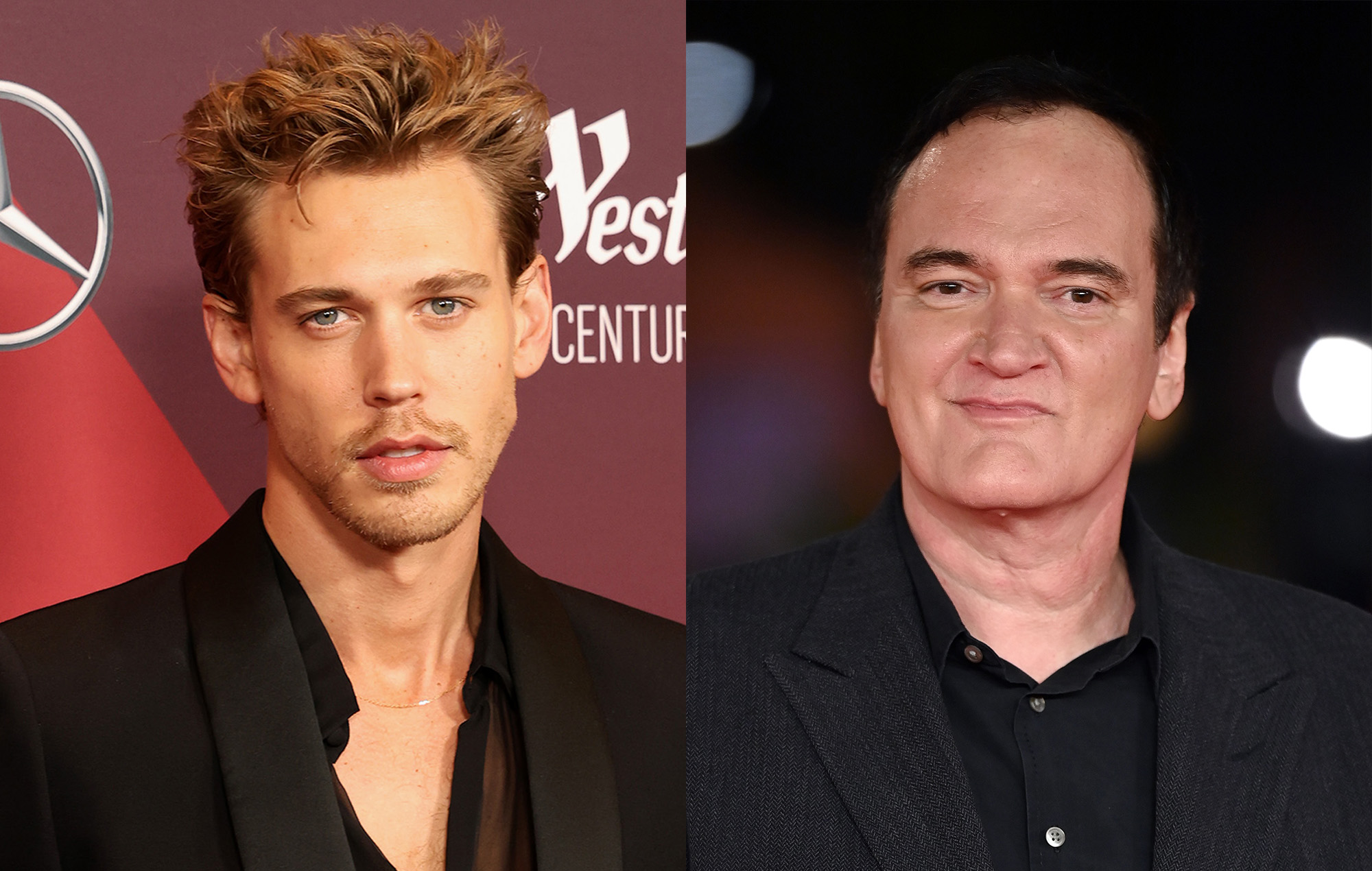Austin Butler is a name that has been making waves in Hollywood, especially with his role in the film “Once Upon a Time in Hollywood.” Directed by Quentin Tarantino, this movie is a love letter to the late 1960s in Hollywood, showcasing the era’s vibrant culture and the challenges faced by those in the film industry. In this article, we’ll delve deep into Butler’s role in the film, its impact on his career, and why it is a significant moment in cinematic history.
The Background of “Once Upon a Time in Hollywood”
“Once Upon a Time in Hollywood” was released in 2019 and quickly became a topic of discussion among film enthusiasts and critics alike. The film features an impressive ensemble cast, including Leonardo DiCaprio, Brad Pitt, and Margot Robbie.
- Setting: The movie is set in Los Angeles during the summer of 1969, a time marked by cultural upheaval and the Manson Family murders.
- Plot Summary: It tells the story of an aging actor and his stunt double, highlighting their struggles in an ever-changing industry. The narrative intertwines real-life events with fictional characters, creating a unique viewing experience.
Austin Butler plays the role of Tex Watson, a member of the Manson Family, who becomes embroiled in the horrific events surrounding the infamous murders. His character’s chilling presence adds a layer of intensity to the film, showcasing Butler’s ability to take on complex roles.
Austin Butler’s Journey to “Once Upon a Time in Hollywood”
Before stepping into the role of Tex Watson, Austin Butler had already carved out a niche for himself in the entertainment industry. His journey is a testament to hard work and perseverance.
Early Life and Career
- Born: August 17, 1991, in Anaheim, California.
- Beginnings: Butler began his career in television, appearing in shows like “Zoey 101” and “The Carrie Diaries.”
- Breakthrough: His breakout role came when he starred in “The Shannara Chronicles,” which allowed him to showcase his acting chops and expand his fan base.
Transition to Film
Austin Butler’s transition from television to film wasn’t instantaneous, but his dedication paid off. His audition for “Once Upon a Time in Hollywood” was pivotal, leading to his casting as Tex Watson.
The Role of Tex Watson
Portraying Tex Watson in “Once Upon a Time in Hollywood” was both a challenge and an opportunity for Butler. Here’s a closer look at his performance and the character he brought to life.
Character Overview
- Tex Watson: A real-life figure involved in the Manson Family and the notorious murders of 1969. Watson is depicted as charismatic yet menacing, embodying the darker aspects of the counterculture movement of the time.
Butler’s Preparation
Austin Butler took his role seriously, immersing himself in the character to deliver a compelling performance. His preparation included:
- Research: Studying the historical context of the Manson Family and the societal dynamics of the 1960s.
- Physical Transformation: Adapting his appearance to match Watson’s look, which included changing his hairstyle and gaining weight for the role.
Performance Highlights
Butler’s portrayal of Tex Watson is haunting and compelling. Some critical aspects of his performance include:
- Emotional Depth: He captures Watson’s internal conflict and instability, making him a relatable yet terrifying character.
- Physicality: His movements and gestures reflect Watson’s volatile nature, enhancing the film’s tension.
Impact on Austin Butler’s Career
The role of Tex Watson in “Once Upon a Time in Hollywood” was a significant milestone for Austin Butler, affecting his career in various ways.
Increased Recognition
- Industry Acclaim: Butler received praise from critics and audiences for his performance, which helped elevate his profile in Hollywood.
- Networking Opportunities: Working alongside established actors like Leonardo DiCaprio and Brad Pitt provided valuable connections and experience.
Future Projects
The success of “Once Upon a Time in Hollywood” opened doors for Butler in the film industry. His impressive performance led to:
- New Roles: Butler was soon cast in various projects, including his portrayal of Elvis Presley in “Elvis,” which showcased his versatility as an actor.
- Director Collaborations: The film’s success led to future collaborations with notable directors, enhancing his reputation in the industry.
The Cultural Significance of “Once Upon a Time in Hollywood”
“Once Upon a Time in Hollywood” is more than just a film; it serves as a cultural touchstone that reflects a pivotal moment in American history.
Nostalgia for the 1960s
The film captures the essence of the 1960s, blending nostalgia with critical commentary on the film industry. Key elements include:
- Music and Fashion: The film features an authentic soundtrack and period-accurate fashion, transporting viewers back to the era.
- Cultural Commentary: It highlights the clash between the Hollywood dream and the harsh realities those in the industry face.
The Manson Family and Its Impact
The depiction of the Manson Family murders brings a dark but essential aspect to the narrative, shedding light on the cultural shifts of the time.
- Historical Context: The film illustrates the fear and chaos brought about by the Manson Family, juxtaposed with the idyllic image of Hollywood.
- Character Representation: By portraying Tex Watson, the film prompts viewers to confront the complexities of good and evil.
Behind the Scenes of “Once Upon a Time in Hollywood”
Creating “Once Upon a Time in Hollywood” was no small feat. The production involved a dedicated team and meticulous attention to detail.
Director Quentin Tarantino
- Visionary Filmmaker: Tarantino is known for his unique storytelling style and ability to blend genres. His vision for “Once Upon a Time in Hollywood” was to create a narrative that celebrates and critiques Hollywood.
- Directing Style: Tarantino’s hands-on approach allowed actors like Austin Butler to explore their characters, leading to memorable performances entirely.
Cinematic Techniques
The film employs various cinematic techniques that enhance the storytelling experience.
- Cinematography: Wide shots and close-ups capture the era’s mood while emphasizing the character’s emotions.
- Set Design: Attention to detail in set design transports audiences back to the late 1960s, making the film feel authentic.
Austin Butler’s Legacy in Hollywood
Austin Butler’s journey and role in “Once Upon a Time in Hollywood” mark significant milestones in his career and the film industry.
Rising Star
- Versatile Actor: Butler has demonstrated his ability to take on diverse roles, making him a sought-after talent in Hollywood.
- Inspiring Journey: His rise from television to film inspires aspiring actors looking to make their mark in the industry.
Influence on Future Generations
As Austin Butler grows, his work in “Once Upon a Time in Hollywood” will undoubtedly influence future filmmakers and actors.
- Role Model: Butler’s dedication and talent set a standard for upcoming actors, emphasizing the importance of hard work and authenticity.
- Cultural Impact: The film itself serves as a reminder of the power of storytelling in cinema, inspiring future generations to explore the complexities of human nature.
Conclusion
In summary, Austin Butler in “Once Upon a Time in Hollywood” is a shining example of talent meeting opportunity. His portrayal of Tex Watson is not just a role; it’s a stepping stone in a promising career that will continue impacting Hollywood. The film captures the essence of a transformative era in cinema, reflecting on the beauty and darkness that intertwine in entertainment.
Whether you’re a fan of Butler or simply an admirer of cinema, “Once Upon a Time in Hollywood” is worth exploring. It showcases the intricate dance between history and storytelling, highlighting the unique talents of actors like Austin Butler. As we look to the future, we can only anticipate what remarkable performances lie ahead for this talented star.
In conclusion, Austin Butler’s Once Upon a Time in Hollywood is more than just a film title; it represents a pivotal moment in Butler’s career and cinematic history. The film’s legacy will undoubtedly influence future generations, proving that the stories we tell today shape the narratives of tomorrow.




